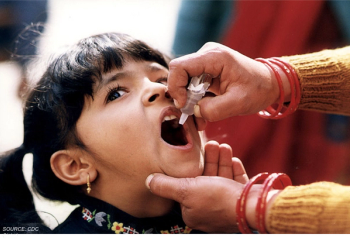
Skin & Soft Tissue Diseases
Latest News
Latest Videos

CME Content
More News

Post-licensure safety data on recombinant zoster vaccine (Shingrix) is consistent with pre-licensure clinical trial data, although the CDC cautions that the immunization is still in the “early uptake period.”

Hospital visits for so-called “Victorian-era” diseases are on the rise in the United Kingdom, and experts there believe public health budget cuts may be behind the upswing.

CDC reports that 81 individuals brought measles into the United States following a trip to another country in 2018.

Tests revealed similar genome type—the potentially lethal 7d variant—among cases despite various facilities of origin.

Applying hospital-based outbreak tools helped researchers identify a community MRSA outbreak

An outbreak in California of wound botulism associated with black tar heroin emphasizes the need of raising awareness about the risk of infectious diseases related to the opioid epidemic.

There is currently no FDA-approved treatment for molluscum contagiosum, but topline positive results from 2 phase 3 trials of an investigational drug look to be promising.

Investigators say a bacteriophage trial that was cut short due to the therapy’s slow effect on infected burns still yielded important insights.

The recent death of a nasal irrigation user may have more to do with dirty water and/or improper use of the device, rather than a flaw with the approach.

Despite increased research and investigations, the cause of the spike in cases of AFM in the United States remains unknown.

The synthetic novel tetracycline offers a new option for complicated intra-abdominal infections.

Freeze-drying vaccines enables health officials to get vaccines to remote areas, but until now, it has not been possible for the fragile polio vaccine.

The new test is approved to assist with detecting cytomegalovirus in newborns less than 21 days of age.

Polio could soon be completely eradicated, but public health officials have an intricate set of steps to ensure a lasting defeat.

New outbreaks of rubella and troubling data on influenza highlight the importance of vaccination.

Herpes simplex virus type 1 is associated with a higher risk of Alzheimer’s disease, yet the antivirals prescribed to treat the infection may reduce the risk of dementia.

A recent report has described a case of wound infection with the bacterium Burkholderia thailandensis in a woman in Arkansas.

The stage may finally be set for the phage therapy era for recalcitrant bacterial infections.

Results indicate patients who received single-dose oritavancin were significantly less likely to be hospitalized, compared to those who received multidose vancomycin.

Instead, increasing duration of postoperative antimicrobial prophylaxis is associated with higher odds of acute kidney injury and C diff infection in a dose-dependent manner.

Delafloxacin was found to be relatively safe and well tolerated in patients with acute bacterial skin and skin structure infections with past or present cardiac or vascular difficulties.

Nonadherence to antiretroviral therapy was associated with a higher risk of death.

Jason Gallagher, PharmD, discusses how omadacycline could potentially replace fluoroquinolone use in the treatment of complicated skin infections and community-acquired pneumonia.

Plenty of research has gone into the causes and progression of Alzheimer’s disease. Now a new effort aims to make the case that scientists have been looking in the wrong direction.

Patients with diabetes who were treated for acute bacterial skin and skin structure infections (ABSSSIs) with iclaprim had fewer adverse events (AEs) than those who were treated with vancomycin, according to the results of a recent study.










































































































































